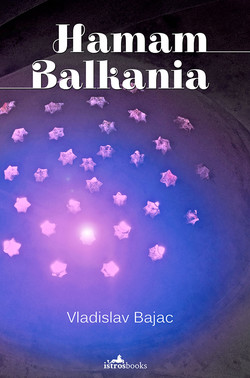Читать книгу Hamam Balkania - Vladislav Bajac - Страница 18
На сайте Литреса книга снята с продажи.
ОглавлениеSeveral months later, the greatest and most important consequence of the pasha’s visit (it turned out he had been spying on them) was the arrival of His Majesty in person among the boys of the blood tribute. Perhaps it would be more correct to say that, this time, they were allowed to stand before the great sultan. His generosity amounted to having the patience to look the group up and down once, to wave his hand indicating that they were to be at ease, and to sit on the couch and allow the ten of them to be introduced individually. This was done by their teacher-aga, as was his right, and Deli Husrev-pasha as a man from the ruler’s escort, and therefore a man of special trust.
The pasha spoke with unfathomable self-confidence about each of the boys individually: from where he was brought, from what kind of family, the things he had shown special talent for during his studies and where, in the pasha’s opinion, he should continue his schooling and his service. Thus, it was in front of the Sultan that Bajica found out that his destiny was planned to be closely connected to the supreme ruler: the imperial caravansary in Istanbul!
For one brief moment he had the chance to glimpse the Sultan’s looking at him; and it made his blood run cold. In the Sultan he saw an odd combination of lethargy and interest, but above all, an icy coldness born from the ubiquity of his power: from questions concerning the tiny destinies of individuals to the shaping of the future of entire tribes or states. On the other hand, the soldier in him was not so sleepy that he did not show interest in these educated slaves upon whom, tomorrow, his life might depend. Bajica was taught that all the children brought here, from Janissary soldier to future high councillors to the emperor, were assigned an equally deserved, identical role with regard to the Sultan. In time, the Sultan, depending on how and when he got close to them, would have more trust in them than in any other military formation. His very life would depend on their loyalty, both individual and collective. But so would their own lives. They would be a shield against all others, both outside and inside the empire. And he would be theirs.
Bajica thought through all of that in the days that followed. After he had sifted through all the other impressions, the one thing that remained most important was that he, Bajica, was no longer hidden from the emperor! Now knew that he meant something to them. Perhaps this was the recognition he received for his acceptance of the foreign. In exchange for that acceptance, he would be given privileges and not be condemned to a slave’s life; though no one would ever be able to free him from his slave status, not even the Sultan himself.
What he had now been offered, was the chance to be the perfect slave.
